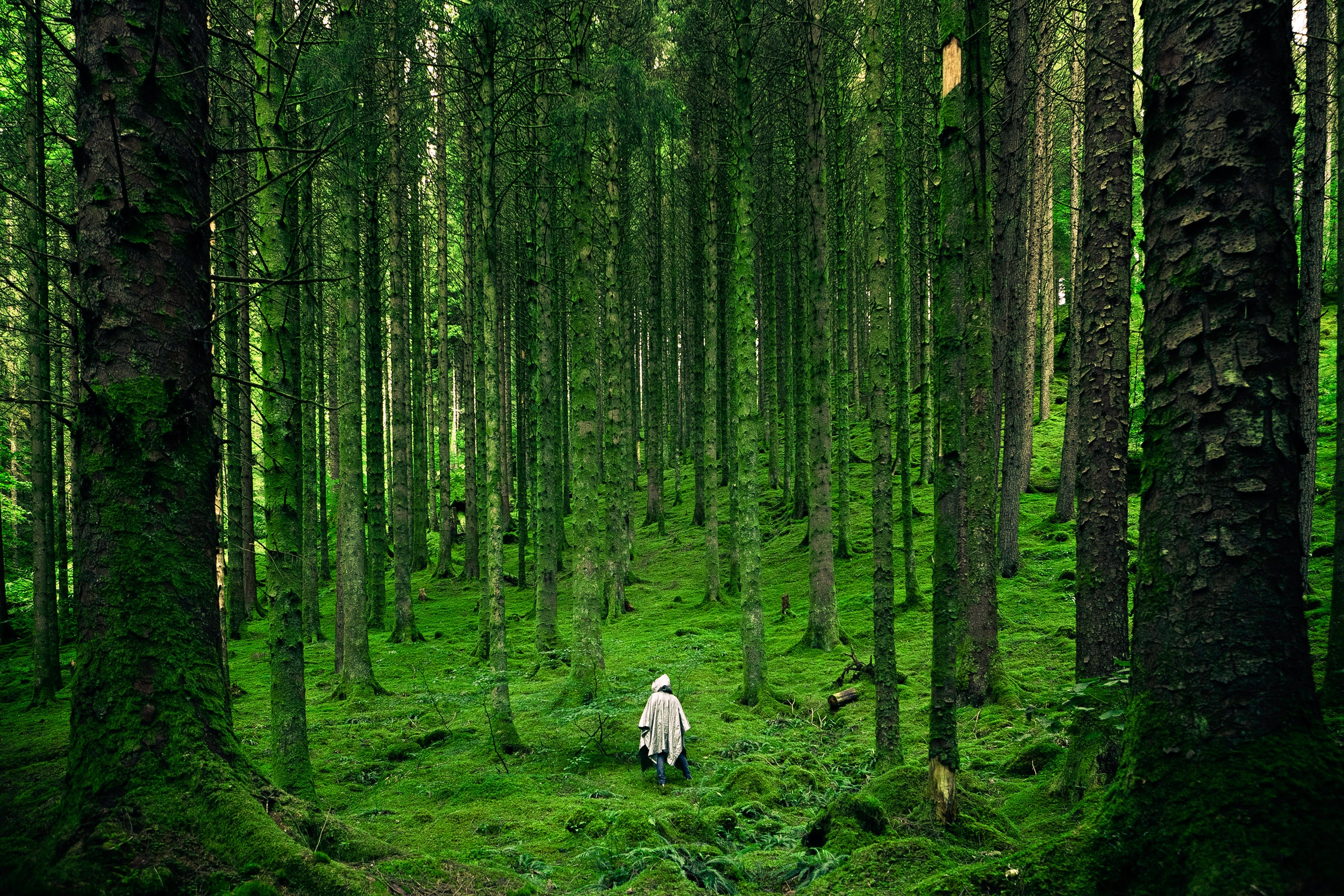Mental Mondays: Could Ecotherapy Be What You Really Need?

A creative writer with a voracious appetite for fashion, beauty,…
W
hat if all the therapy you need is nature? Not office therapy. Not phone therapy. Not coffee or booze. Just you, the trees, the birds, and the springs. Talk about a type of healing that involves being immersed in the soothing embrace of the great outdoors. This is called Ecotherapy. It is a transformative approach to mental health and well-being that connects individuals with the natural world to promote healing, self-awareness, and personal growth. In this modern age of technology and urban living, the concept of Ecotherapy is like an oasis in a frenzied world, offering us a breath of fresh air, literally, to help us reconnect with ourselves and the environment.
What is Ecotherapy?

Ecotherapy, also known as nature therapy or green therapy, is a form of therapeutic practice that harnesses the healing power of nature to support individuals in their emotional, psychological, and spiritual journeys. Rooted in the belief that humans are intrinsically connected to the natural world, Ecotherapy seeks to address various mental health issues and promote overall well-being by immersing individuals in nature-based activities and experiences.
This unique form of therapy can take many shapes and forms, from guided outdoor sessions with a therapist to individual nature experiences that encourage introspection and self-reflection. Ecotherapy sessions often include activities like hiking, gardening, animal-assisted therapy, wilderness expeditions, mindfulness exercises, and more.
Types of Ecotherapy
The following are the types of Ecotherapy available to improve your overall well-being:
- Horticultural therapy: This type of Ecotherapy involves gardening and plant-related activities. It allows individuals to connect with the earth through nurturing plants, fostering growth, and creating a sense of responsibility and purpose.
- Wilderness therapy: Also known as adventure therapy, wilderness therapy takes individuals into the great outdoors where they engage in challenging activities like hiking, camping, or rock climbing. The wilderness environment becomes a catalyst for self-discovery, resilience-building, and overcoming personal obstacles.
- Animal-assisted therapy: Animals have a profound impact on our emotional well-being. Animal-assisted therapy integrates animals, such as horses, dogs, or even dolphins, into therapeutic sessions, promoting trust, empathy, and emotional healing.
- Nature mindfulness: This type of Ecotherapy encourages individuals to practice mindfulness in natural settings, paying close attention to their surroundings and their senses. It helps reduce stress and anxiety while fostering a deeper appreciation for nature.
Benefits of Ecotherapy

- Spending time in nature has been shown to lower cortisol levels, the stress hormone, leading to decreased anxiety and improved overall mental health.
- Interacting with nature boosts serotonin and dopamine levels which are neurotransmitters associated with happiness and improved mood.
- Ecotherapy encourages self-reflection and introspection, helping one gain a deeper understanding of themselves and their emotions.
- Engaging in outdoor activities like hiking or gardening promotes physical fitness and overall well-being.
- Spending time with nature strengthens the bond between humans and Mother Earth.
The simplest ways to begin this form of therapy
- Spend a day hiking in the woods. Take a break from the hustle and bustle of daily life and explore nearby nature trails. Let the serenity of the woods envelop you as you immerse yourself in the beauty of the natural world.
- Take your indoor games outside. Bring board games, yoga mats, or art supplies outside and enjoy these activities amidst nature’s embrace. This simple change of setting can elevate your experience and create a deeper connection with the environment.
- Practice mindfulness in nature. Find a quiet spot outdoors and practice mindfulness exercises. Focus on your breath, observe the sounds around you, and feel the earth beneath your feet. This mindful connection can be both grounding and rejuvenating.
- If you have access to a garden or even a small balcony, try cultivating plants. Nurturing them and watching them grow can be a profoundly therapeutic and rewarding experience.
- Contribute to or volunteer in environmental conservation campaigns. This aligns your actions with your values, creating a sense of purpose and fulfillment.
Featured image: @aokileesimmons/Instagram
Medical Disclaimer
All content found on the StyleRave.com website, including text, images, audio, video, and other formats is created for informational purposes only. The content is not intended to be a substitute for professional medical advice, diagnosis, or treatment. If you think you may have a medical emergency, please call your doctor, go to the nearest hospital, or call 911 immediately depending on your condition.
For the latest in fashion, lifestyle, and culture, follow us on Instagram @StyleRave_
This is a Style Rave original content exclusively created for our readers. If reproduced, distributed, transmitted, cached, or otherwise used by any other publishing house or blogs, such use should provide a direct link to this source article. Use of and/or registration on any portion of this site constitutes acceptance of our Terms & Conditions and Privacy Policy.
—Read also
A creative writer with a voracious appetite for fashion, beauty, lifestyle and culture. As one who's passionate about the advancement of the woman, creating content that inspire smart style and living, and positive lifestyle changes is a calling I take seriously. At Style Rave, we aim to inspire our readers by providing engaging content to not just entertain but to inform and empower you as you ASPIRE to become more stylish, live smarter and be healthier. Follow us on Instagram @StyleRave_ ♥







